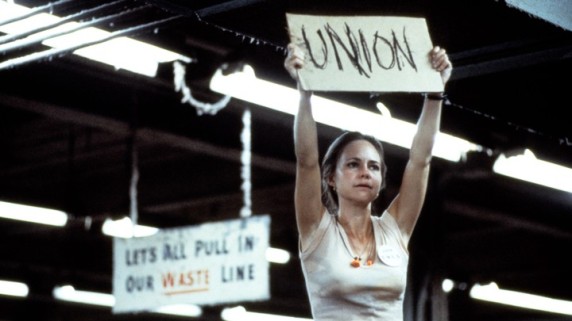
In 1973, labor organizer Crystal Lee Sutton was fired from the J.P. Stevens textile plant in Roanoke Rapids, NC. Her crime was “insubordination,” after her boss took issue with Sutton copying an anti-union letter on the bulletin board. Sutton had been organizing the workers in the plant to form a defense against unsafe working conditions and harassment from the bosses. Shortly after being fired, Sutton stood on a table with a hand-written sign reading “UNION,” workers turned off their machines, and all attention focused on her.
While Sutton was fired, her efforts worked–the textile workers voted to unionize the following year, and Sutton quickly landed a replacement job–working for the AFL-CIO as a labor organizer.

Her story gripped the nation, and the year after the workers at the plant voted to unionize, her story became Norma Rae–a low-budget movie that rose to the ranks of serious contender for the Palme d’Or at the Cannes Film Festival. It was nominated for 4 Academy Awards, including Best Picture, of which it earned 2–one for Sally Field in her first Academy Award win for Best Actress, and one for its theme song, “It Goes Like it Goes.” The film was a huge success upon its release, grossing $22 million–$17 million more than it took to make.
In the years since its release, Norma Rae has become synonymous with the labor movement, and with Sally Field. Up to this point, Field had been best known for her roles in The Flying Nun and Gidget. Her reputation made her an unlikely choice for Norma Rae. But following her knockout performance in Sybil two years earlier, her potential as a serious actress was the buzz of the industry. After Jane Fonda turned down the role of Norma Rae, the assistant of director Martin Ritt recommended Field. Ritt took to her immediately, but he had to fight with studio executives to allow her to be cast. Fields writes in her memoir, In Pieces:
“Marty Ritt asked me to come in… He said, ‘Look, the studio doesn’t want you… and they offered it to everyone else, and luckily they turned it down, because I want you, and I will fight for you, and I will win.”
Ritt was right in his instincts. As production continued, it became clear that Sally Field’s performance was going to change her career. Far from her girl-next-door portrayals of Gidget and The Flying Nun, Field played Norma Rae as a fierce, determined fighter with a backbone of steel.

The details of production demonstrate the wide-ranging impact that Sutton’s activities had on J.P. Stevens and other textile mills. Martin Ritt had wanted to shoot on location at a J.P. Stevens plant, but due to the vociferous objections of the bosses, they had to find another, friendlier mill. They ultimately opted for Opelika Manufacturing Corp. in Opelika, AL, where the workers had voted in a strong union, much like the one at J.P. Stevens. During the scenes at the mill, the real-life workers played extras.

Norma Rae‘s production generated great excitement among the residents in small-town Opelika. At the time, Field was the girlfriend of Burt Reynolds, whose star dwarfed hers. Residents of Opelika frequently came out to watch the shoots, hoping that Reynolds would visit Field on the set. He did several times. Guy Rhodes, associate editor of the Tuskegee News in Tuskegee, AL, wrote about the film’s effect on citizens of Opelika. “To say there was excitement in the air would be an understatement. Not only were the stars in town, numerous local residents were selected to play extra roles in the movie.”

Reynolds and Field.
When production wrapped and the film was submitted to Cannes, it was immediately swept up in talk of the Palme d’Or and for the Best Female Performance Prize, which Field won. In subsequent ceremonies, she also won Best Actress at the Los Angeles Film Critics Association Awards, the National Board of Review, New York Film Critics Circle Awards, the Golden Globes, and the National Society of Film Critics Awards, before winning the Oscar.
The film did indeed change Sally Field’s career and reputation forever. In addition to the transformation in her professional life, she also credits Norma Rae with a personal wake-up call. “It so changed me on so many levels,” she told Oprah Winfrey. “It changed me politically, I don’t think I was ever aware politically, at all. It started me into looking at other people and how they lived, and I don’t think I had ever done that before.”
Despite all the accolades that it received, and despite its place in the career of one of our most respected modern actresses, Norma Rae is not widely accessible today. It is not streaming on Netflix, YouTube, Hulu, Google Play, Amazon Prime Video, or any of the platforms on which most people access their movies nowadays. As I search the internet, I can find it in two places accessible to me–on DVD from Amazon, and at a branch of my local library. This puzzling circumstance is perhaps explained by the content of the film, and its effect on its audience.
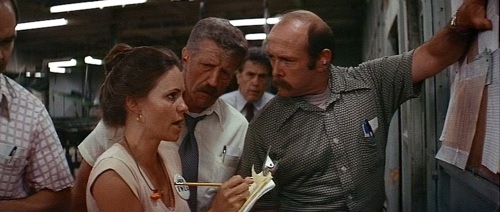
Norma Rae is unapologetically pro-labor. It shows its viewers exactly how to form a union in the workplace, from handing out fliers to be read “on your break” to dealing with opposition from bosses and coworkers. The movie shows in meticulous and exacting detail how to work around common obstacles and have a successful union vote. Certain interactions are dramatized and exaggerated for effect, but the situations are very real. Simply by watching Norma Rae, a viewer can learn a great deal about workplace organizing. And above all, it shows that courage and standing up for what’s right pays off in the end.
Happy Labor Day, readers. I hope this long weekend finds you organizing for a better world, whatever that means to you.

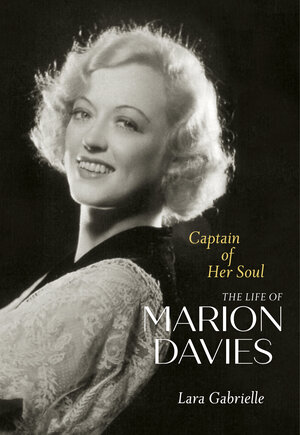


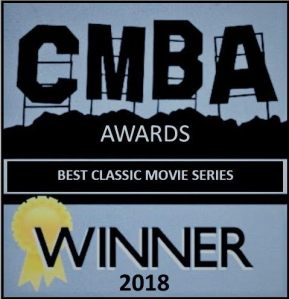



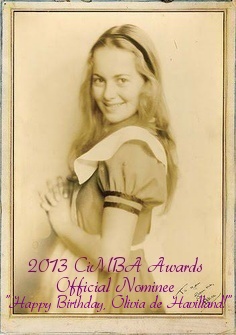


















_03.jpg)
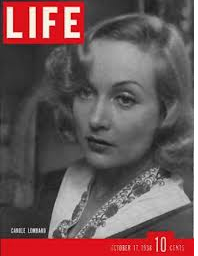

I will be on the lookout for what sounds like an admirable film. A great review for Labour Day!
I find adolescent actors are so underrated. In a very touching performance in one Gidget episode, Sally Fields worries because her father is late returning home. She imagines the worst and tears quietly spill out of her eyes. It is a touching, powerful, understated moment in an otherwise fluffy episode. It says a lot about the limited film roles available in the 70s to actresses of Fields’ acting chops and ability when one realizes that the star of a film like Smokey and the Bandit was a bigger star than Sally Fields.
Wouldn’t want to give people ideas!
That’s why I have a feeling it’s so hard to come by. The powers that be don’t want to give people ideas.
This is a great review of one of my favorite films, and I learned new information about it. Sally Field is a revelation in it. Thank you, Lara.
I’m so glad you enjoyed it, Paula!
Thanks again for pointing us toward something important to ponder and how that can be difficult when the good works are under accessible.
Thank you, Marty. I’m happy to be able to provide something to think about.
Thanks for this informative and entertaining celebration of a fine film with an important and still relevant su jrct.
Regards Thom